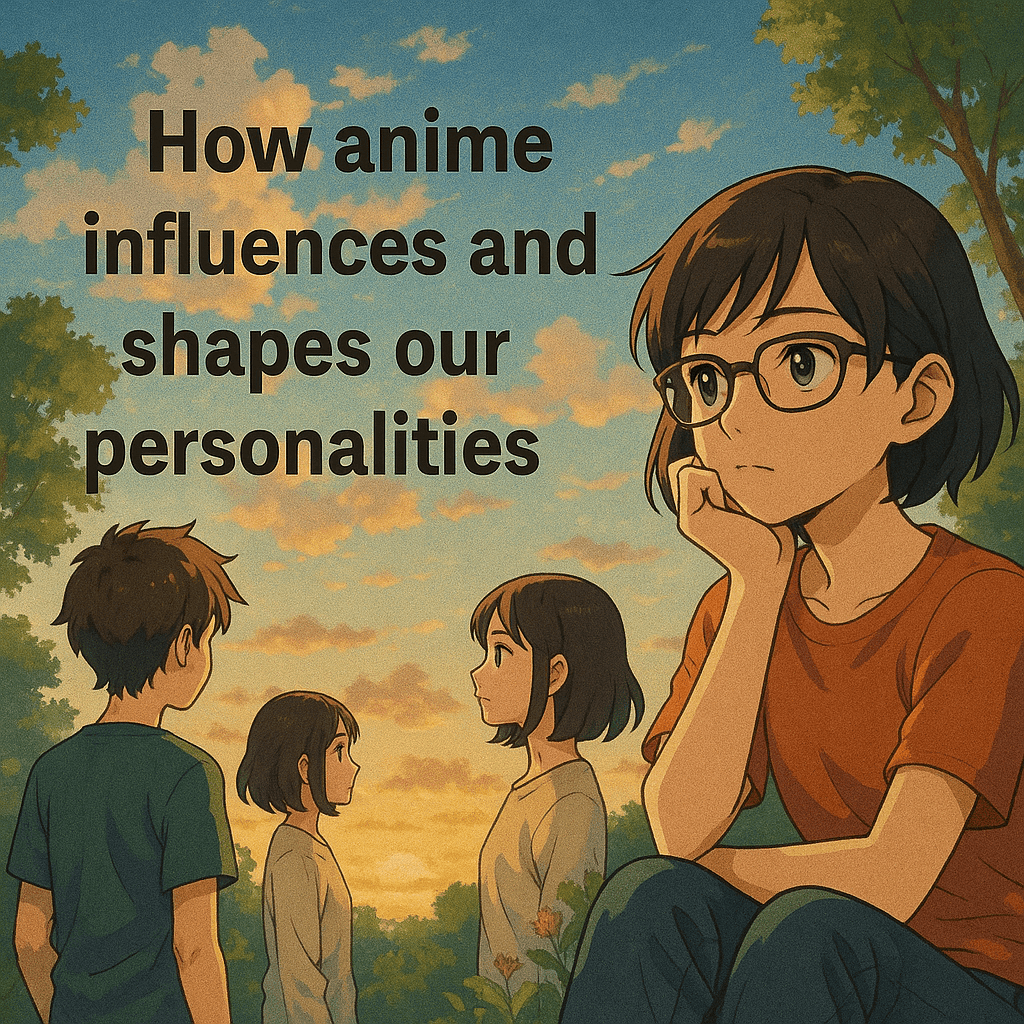Introduction: The Global Reach of Anime
Anime has evolved from a niche interest into a global cultural phenomenon, captivating millions across continents. What was once considered just Japanese "cartoons" now holds deep artistic, emotional, and philosophical significance. With immersive storytelling, compelling characters, and powerful themes, anime does more than entertain—it shapes worldviews, inspires action, and influences personality development. In today's digital age, where media consumption deeply impacts self-perception and social behavior, understanding anime’s influence is more relevant than ever.
This article explores how anime shapes personality traits, encourages personal growth, and even affects emotional and ethical development—both positively and, in some cases, negatively.
The Psychological Impact of Anime on Personality Development
1. Character Identification: Seeing Ourselves in Fictional Heroes
One of the strongest psychological effects anime has on viewers is character identification. When fans relate to the emotional journeys of anime characters, they may subconsciously adopt those characters' traits. Whether it's Naruto’s resilience, Luffy’s loyalty, or Mikasa’s strength, these portrayals help individuals connect with their inner selves.
This process can:
- Boost empathy and emotional intelligence
- Inspire viewers to face fears or take initiative
- Encourage self-reflection and emotional growth
By identifying with characters’ struggles and growth, fans often begin to develop similar emotional responses and coping strategies in real life.
2. Aspiration and Motivation Through Anime Heroes
Many anime characters serve as powerful role models, representing virtues like perseverance, kindness, and discipline. Viewers may emulate the habits or values of admired protagonists.
Examples of anime-influenced motivation:
- Starting a fitness routine after watching a disciplined character (e.g., Rock Lee from Naruto)
- Developing a never-give-up mindset inspired by My Hero Academia
- Cultivating patience and empathy through slice-of-life or healing anime like Barakamon or March Comes in Like a Lion
Such aspirations can significantly boost confidence and encourage long-term personal development.
3. Emotional Regulation and Catharsis
Anime’s emotional depth offers a form of emotional education. Intense storylines—such as those in Clannad, Violet Evergarden, or Attack on Titan—evoke a wide range of feelings, allowing viewers to:
- Process emotions in a safe, controlled environment
- Build emotional resilience
- Experience catharsis, which aids mental health and emotional clarity
This emotional engagement helps individuals learn to better recognize, manage, and express their feelings in real life.
Social and Cultural Benefits of Watching Anime
1. Building Identity and Community through Fandom
Anime creates strong communities both online and offline. Whether it's Reddit forums, Discord groups, or anime conventions, these spaces allow people to connect over shared interests.
Benefits of anime communities:
- Enhanced social skills and communication
- Opportunities for self-expression (through cosplay, fan art, or fan fiction)
- A sense of belonging and shared identity
Participating in fan culture helps many individuals come out of their shells, discover passions, and build lasting friendships.
2. Exposure to Global Cultures and Values
Anime acts as a cultural bridge, teaching international viewers about Japanese traditions, societal values, and even language.
Key cultural takeaways:
- Learning about Japanese holidays, rituals, and etiquette
- Understanding group harmony (wa), respect for elders, and personal discipline
- Increased cultural empathy and global open-mindedness
These insights contribute to greater tolerance, curiosity, and appreciation for diversity.
3. Language Learning and Communication Skills
Thanks to subtitles and recurring Japanese phrases, many fans develop a basic understanding of the language. Anime can:
- Improve reading speed and comprehension
- Teach basic Japanese vocabulary and expressions
- Encourage deeper linguistic study for motivated learners
Anime makes learning languages fun, immersive, and context-driven, which improves retention and enjoyment.
How Anime Shapes Moral and Ethical Perspectives
1. Exploring Themes of Justice and Morality
Anime often wrestles with deep ethical questions—what’s right, what’s wrong, and the gray areas in between. Series like Death Note, Code Geass, and Monster challenge viewers to reflect on justice, power, and the consequences of our choices.
These narratives promote:
- Moral reasoning and ethical debate
- Reflection on personal values
- Critical thinking about complex real-life scenarios
2. Reinforcing Values of Friendship, Courage, and Perseverance
Anime frequently emphasizes enduring friendships, fighting against odds, and staying true to one’s beliefs. From One Piece to Fullmetal Alchemist, these recurring themes reinforce positive life principles:
- Never giving up
- Standing by your friends
- Having the courage to do what's right, even when it’s hard
3. Challenging Authority and Encouraging Independent Thought
Shows like Attack on Titan or Akudama Drive present rebellious characters who question societal norms or corrupt systems. These stories inspire:
- Independent thinking
- Healthy skepticism
- Willingness to stand up against injustice
This can be empowering, especially for younger viewers learning to define their own values.
Potential Downsides: Where to Be Mindful
1. Excessive Escapism and Isolation
While anime can be a comforting escape, excessive binge-watching may lead to:
- Social withdrawal
- Reduced productivity
- Disconnection from reality
Solution: Set boundaries, balance screen time with real-life activities, and engage in anime-related social events to maintain a healthy lifestyle.
2. Unrealistic Standards and Low Self-Esteem
Idealized characters with perfect physiques or personalities may lead to:
- Negative body image
- Feelings of inadequacy
- Unrealistic life expectations
Always remember: anime is fiction. Real strength lies in embracing your unique self, imperfections and all.
3. Exposure to Violence or Sensitive Topics
Not all anime is suitable for all ages. Some explore mature themes such as trauma, abuse, or graphic violence, which may affect mental well-being, especially in younger viewers.
Tips for safe viewing:
- Check content ratings
- Use parental controls when needed
- Be mindful of emotional reactions and take breaks
Conclusion: Embracing the Positive Power of Anime
Anime is more than entertainment—it's a powerful medium for personal growth, emotional development, and cultural awareness. When consumed mindfully, it can teach us how to be braver, more empathetic, and more open-minded.
But like all media, balance is crucial. Be conscious of what you watch and how it affects your thoughts and behavior. Use anime not just to escape—but to inspire, reflect, and grow.
Takeaway Tip:
Next time you choose an anime, ask yourself:
What can I learn from this story? How can this character's journey inspire mine?
Anime has the potential to help you become the best version of yourself—one episode at a time.



Comments ()